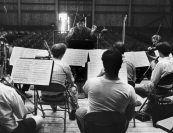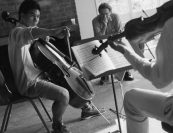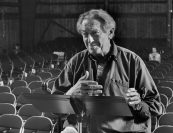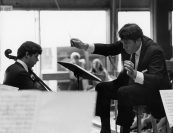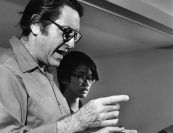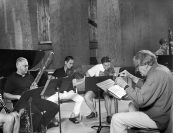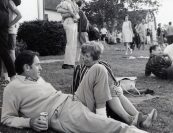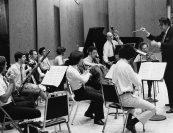Rudolf Serkin was a man of few words, but his sense of what might help some of the world’s most exceptional young instrumentalists to become thoughtful and transformative musicians at Marlboro was uncanny. He gathered together a group of distinguished colleagues whose knowledge and experience were a marvelous resource for generations of young musicians.
Among them was composer, conductor, pianist, and Harvard professor Leon Kirchner. He first came to Marlboro in 1958 when he played his Sonata Concertante with violinist Alexander Schneider. When he returned in 1963 as Resident Composer, it marked the beginning of a 12-year period when new music and living composers became an integral part of the Marlboro experience. As composer, pianist, and conductor, and someone who could play a Mozart concerto and conduct the Beethoven Choral Fantasy with the same insights that he brought to his own compositions, Kirchner opened up new worlds for Marlboro’s exceptional young musicians. Many of them would go on to become founders or members of such ensembles as the Emerson, Guarneri, Cleveland, and Vermeer Quartets, the Beaux Arts and Kalichstein-Laredo-Robinson Trios, the Chamber Music Society of Lincoln Center, and the Silk Road Project.
He brought young composers to Marlboro, including John Adams, Paul Chihara, David Del Tredici, Barbara Kolb, Oliver Knussen, Fred Lerdahl, and Tison Street and invited such distinguished colleagues as George Crumb, Luigi Dallapiccola, Earl Kim, Ned Rorem, and Tōru Takemitsu to discuss and often lead their works. All of them marveled at having their works explored in the kind of depth possible only at Marlboro, and rehearsed and performed by such devoted and gifted musicians.
Major revelatory scores for larger ensembles were studied and performed at Marlboro for the first time, led by Kirchner: Alban Berg’s Chamber Concerto; Arnold Schoenberg’s Chamber Symphony No. 1; his Serenade, Op. 24 and Suite, Op. 29 (both recorded for the Marlboro Recording Society, later released on SONY Classical); Kirchner’s own Concerto for Violin, Cello, Ten Winds, and Percussion; and, in 1964 and again in 1968, Stravinsky’s Les Noces. The rarely-heard Stravinsky was a major production, calling for four solo voices, four pianos, six percussionists, and chorus. Four of the six percussionists were so taken with the work and with playing together that they formed the acclaimed NEXUS percussion ensemble.
The seeds that Leon Kirchner planted in the 1960s continue to flourish at Marlboro with the works of each summer’s resident composer, not only illuminating the season’s concerts but often being shared with a larger audience on the Musicians from Marlboro tours.
Watch Leon Kirchner rehearsing his piano trio at Marlboro with violinist Shmuel Ashkenasi and cellist Leslie Parnas as part of the 1967 Bell Telephone hour documentary.
☙Use the links below to access additional biographical and archival materials. ❧

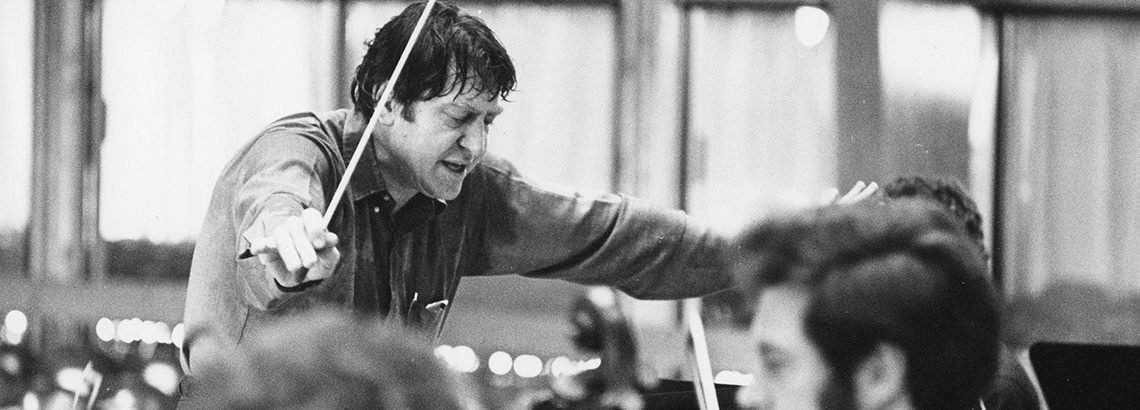
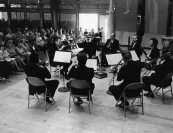
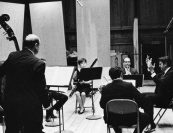
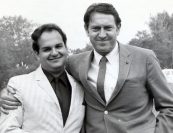
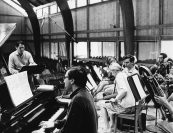
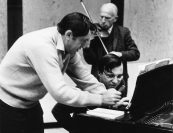
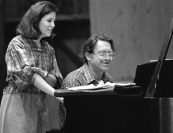
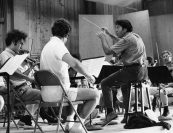
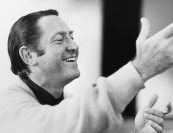
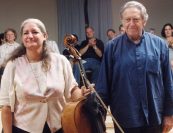
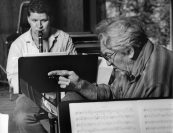
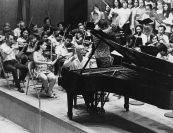
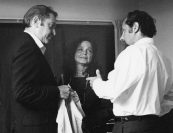
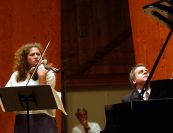
!["As an interpreter of the great classics… Leon was consistently thoughtful and stimulating, combining deep love and respect for the music with an intensely dramatic and flexible attitude that always revealed new facets of familiar works that were too often taken for granted. It was a composer’s approach that combined head and heart in ideal proportion.” —Tonu Kalam | George Crumb, Kirchner, Tonu Kalam, Michael Riesman, [unknown], Luigi Dallapiccola.](https://www.marlboromusic.org/wp-content/uploads/2023/06/AM-039-173x133.jpg)
